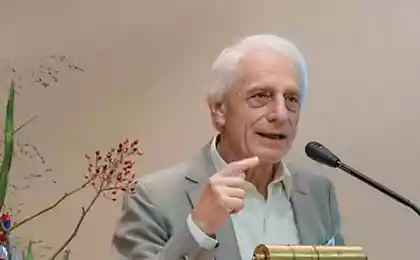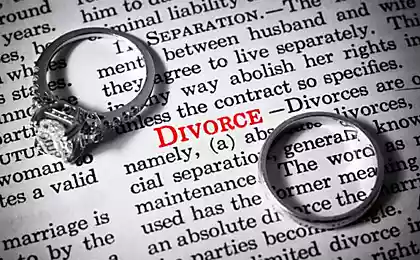451
To be right or happy?
In these hot days reveals I imagination to talk to you, dear friends, about pride and humility.
I suppose that many in this place, yawned and stretched hand to "mouse" — read about these "Church" terms there is no interest. I personally alien to the religious. I'm closer to vulgar materialism and Soviet education, and in my opinion the first, science and education (biology-chemistry), and the profile of activities.

© Lim Heng Swee
I understand those words — pride and humility — not as a religious (Orthodox, Muslim, Jewish or Buddhist) concepts, and as a universal category.
With these categories (pride-humility) I encounter in every training, on every family and individual counseling. By and large, any family quarrel, any showdown or even just the statement can be attributed to the manifestation of pride or of humility.
They had to do so;
I was set up;
My husband is doing everything right;
-My mom always thinks I'm wrong;
I had to tell him that.
In response to these descriptions, I always ask the question: do you want to be right or happy? Right, the search for justice, the desire to defeat the essence of the expression of pride. The feeling of happiness relates to other category — to humility.
"Humility" — to be "peace" in one dimension, in one rhythm, in one matrix, if you want. Not in the context of good and evil, and in the context of worldview, miropriyatie. Humility in my understanding, is a universal tool, the key to solving any problem. Capable of beyond justice, righteousness, victory, and thus to rise above the conflict.
If there is any conflict, for example, black against white, to raise up to the level of universal values, it loses its meaning. The conflict involves the opposition of "we are white, good, they, black, bad". Who is the we? People. And they? People. We love children and want to be happy, and they? I love children and want to be happy. The opposition at this level, no. At the level of the question "who am I?" conflict the "we-they" splits. In psychology this is called outframing – to go beyond the conflict in a broader frame. At the risk of sounding too religious, let me suggest that God is outside the conflict because its scope is much broader than our?
Paradigm clashes, combat, conflict, comparing ourselves to others (whether for better or worse) is pride. "Consider yourself the worst sinner is the same conceit as to consider themselves Holy...", for example. People agree that collisions between peoples and racial struggles are attributable to national and racial pride (hubris).
She, the pride, the strongest motivator for achievement. So is there something stronger, more important, more valuable achievements? Looks cool in the category of humility. But any dictionary will tell you that pride is the opposite of humility. Pride according to the categories of good/bad, right/wrong, win/lose. Humility — as a holistic perception of Life, what it is.
Both these paradigms (pride and humility) to some extent accessible to everyone. They are constantly represented amongst the award criteria. Simply put, making a decision, we are guided and pride, and humility, the only question is the ratio.
Pride is a way of doing the impossible, overcome the insurmountable. An example of the motto of this paradigm could be "I See the goal, I do not see obstacles". Humility is the position expressed in the famous prayer attributed to king Solomon and other sages: "o my Lord! Give me the courage to change what you can change, grant me the serenity to accept what cannot be changed and give me wisdom to distinguish one from the other."
If we talk about specific examples, we can take tragedy, loss (death, divorce). Left person and for many months your pride whispers to you in dreams and in reality: "You were supposed to do so and so; bring him back." Under the aegis of the paradigm of pride is a large part of mourning, of acute grief, failure, not ready to accept the obvious. In turn people get tired of fighting what has happened and is inevitable, existing. He bows his head and resigns himself. Acute grief in his soul gradually replaced by light sorrow, and his heart returns to the world. In early may the bitter and sad, but life goes on. Probably, it is very important to go through this "loop the loop" denial, paying the debt of his love, his suffering, his grief, his irreparable loss.
Maybe there is an age of pride and has an age of humility. There was a time when only pride gave me the strength to be yourself. Apparently, pride – is the category that defines the young, indomitable, unconquerable in its power of spontaneity. "I'll do it! I'll do it, even if the mother will allow!" (if you remember the logic of the young fighter for independence ). I hope today I require less power of this type (pride), because more own wisdom.
Man alive, choosing life, choosing continuation, the person tolerant, accepting, wise, in his bottomless wisdom and not omnipotent in its power, life goes on. "Abide" is to live in peace. Here's a little wisdom mastered me in the first half of my life. And maybe secondly, I'll think of something else?.. published
P. S. And remember, just changing your mind - together we change the world! ©
Source: roytmaninstitute.org/byt-pravym-ili-schastlivym.html
I suppose that many in this place, yawned and stretched hand to "mouse" — read about these "Church" terms there is no interest. I personally alien to the religious. I'm closer to vulgar materialism and Soviet education, and in my opinion the first, science and education (biology-chemistry), and the profile of activities.

© Lim Heng Swee
I understand those words — pride and humility — not as a religious (Orthodox, Muslim, Jewish or Buddhist) concepts, and as a universal category.
With these categories (pride-humility) I encounter in every training, on every family and individual counseling. By and large, any family quarrel, any showdown or even just the statement can be attributed to the manifestation of pride or of humility.
They had to do so;
I was set up;
My husband is doing everything right;
-My mom always thinks I'm wrong;
I had to tell him that.
In response to these descriptions, I always ask the question: do you want to be right or happy? Right, the search for justice, the desire to defeat the essence of the expression of pride. The feeling of happiness relates to other category — to humility.
"Humility" — to be "peace" in one dimension, in one rhythm, in one matrix, if you want. Not in the context of good and evil, and in the context of worldview, miropriyatie. Humility in my understanding, is a universal tool, the key to solving any problem. Capable of beyond justice, righteousness, victory, and thus to rise above the conflict.
If there is any conflict, for example, black against white, to raise up to the level of universal values, it loses its meaning. The conflict involves the opposition of "we are white, good, they, black, bad". Who is the we? People. And they? People. We love children and want to be happy, and they? I love children and want to be happy. The opposition at this level, no. At the level of the question "who am I?" conflict the "we-they" splits. In psychology this is called outframing – to go beyond the conflict in a broader frame. At the risk of sounding too religious, let me suggest that God is outside the conflict because its scope is much broader than our?
Paradigm clashes, combat, conflict, comparing ourselves to others (whether for better or worse) is pride. "Consider yourself the worst sinner is the same conceit as to consider themselves Holy...", for example. People agree that collisions between peoples and racial struggles are attributable to national and racial pride (hubris).
She, the pride, the strongest motivator for achievement. So is there something stronger, more important, more valuable achievements? Looks cool in the category of humility. But any dictionary will tell you that pride is the opposite of humility. Pride according to the categories of good/bad, right/wrong, win/lose. Humility — as a holistic perception of Life, what it is.
Both these paradigms (pride and humility) to some extent accessible to everyone. They are constantly represented amongst the award criteria. Simply put, making a decision, we are guided and pride, and humility, the only question is the ratio.
Pride is a way of doing the impossible, overcome the insurmountable. An example of the motto of this paradigm could be "I See the goal, I do not see obstacles". Humility is the position expressed in the famous prayer attributed to king Solomon and other sages: "o my Lord! Give me the courage to change what you can change, grant me the serenity to accept what cannot be changed and give me wisdom to distinguish one from the other."
If we talk about specific examples, we can take tragedy, loss (death, divorce). Left person and for many months your pride whispers to you in dreams and in reality: "You were supposed to do so and so; bring him back." Under the aegis of the paradigm of pride is a large part of mourning, of acute grief, failure, not ready to accept the obvious. In turn people get tired of fighting what has happened and is inevitable, existing. He bows his head and resigns himself. Acute grief in his soul gradually replaced by light sorrow, and his heart returns to the world. In early may the bitter and sad, but life goes on. Probably, it is very important to go through this "loop the loop" denial, paying the debt of his love, his suffering, his grief, his irreparable loss.
Maybe there is an age of pride and has an age of humility. There was a time when only pride gave me the strength to be yourself. Apparently, pride – is the category that defines the young, indomitable, unconquerable in its power of spontaneity. "I'll do it! I'll do it, even if the mother will allow!" (if you remember the logic of the young fighter for independence ). I hope today I require less power of this type (pride), because more own wisdom.
Man alive, choosing life, choosing continuation, the person tolerant, accepting, wise, in his bottomless wisdom and not omnipotent in its power, life goes on. "Abide" is to live in peace. Here's a little wisdom mastered me in the first half of my life. And maybe secondly, I'll think of something else?.. published
P. S. And remember, just changing your mind - together we change the world! ©
Source: roytmaninstitute.org/byt-pravym-ili-schastlivym.html
























